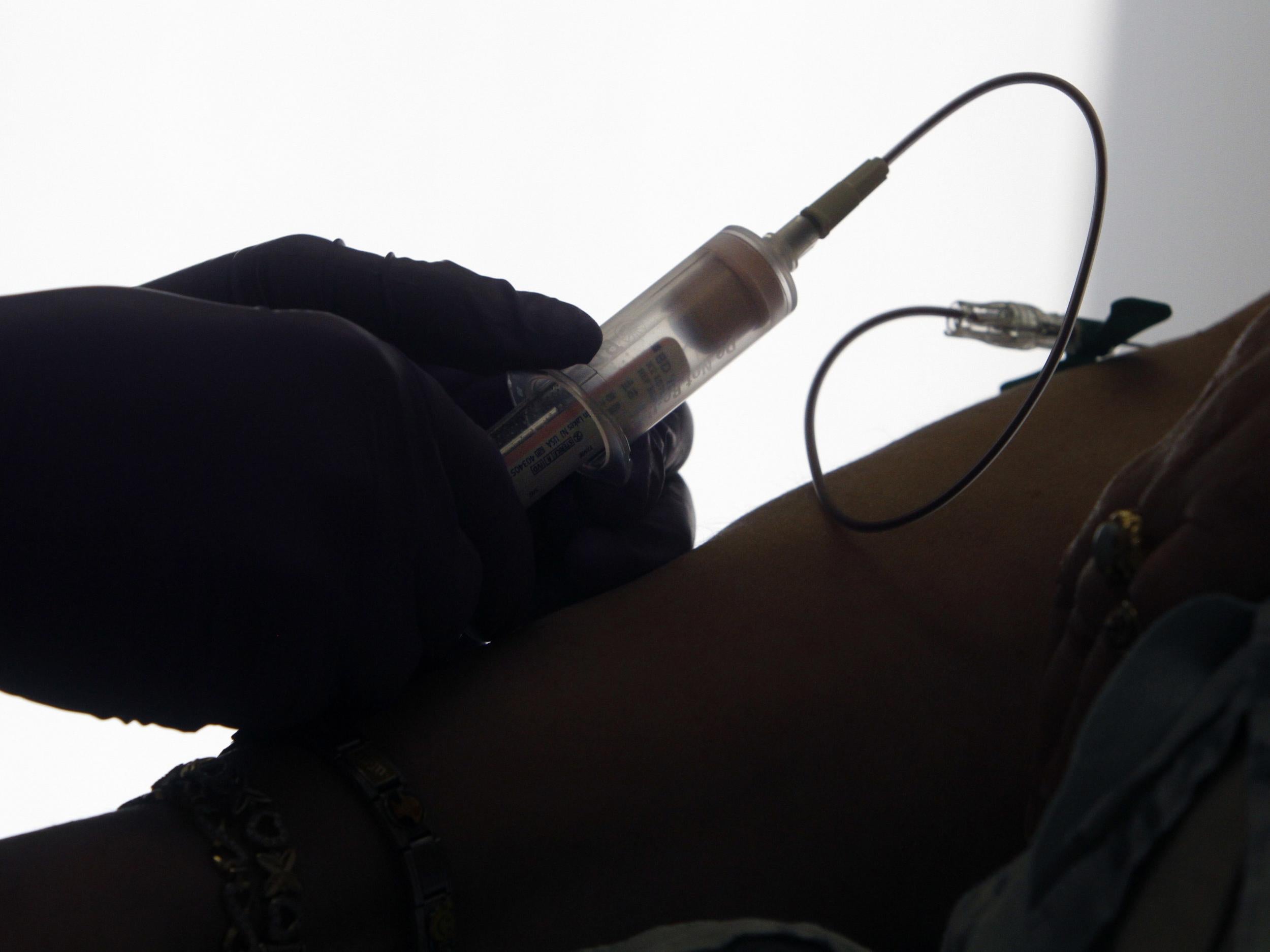Cancer scientists hail breakthrough with 'game-changing' universal blood test for spotting gene mutations
CancerSEEK examination developed by researchers at Johns Hopkins University in US evaluates eight protein levels commonly released by suffers of the disease

Your support helps us to tell the story
From reproductive rights to climate change to Big Tech, The Independent is on the ground when the story is developing. Whether it's investigating the financials of Elon Musk's pro-Trump PAC or producing our latest documentary, 'The A Word', which shines a light on the American women fighting for reproductive rights, we know how important it is to parse out the facts from the messaging.
At such a critical moment in US history, we need reporters on the ground. Your donation allows us to keep sending journalists to speak to both sides of the story.
The Independent is trusted by Americans across the entire political spectrum. And unlike many other quality news outlets, we choose not to lock Americans out of our reporting and analysis with paywalls. We believe quality journalism should be available to everyone, paid for by those who can afford it.
Your support makes all the difference.A newly developed single blood test has the potential to change the way doctors screen for cancer, researchers have said.
Scientists at Johns Hopkins University in the US have developed a test that screens for eight common forms of cancer and helps identify the location of the disease.
The test, called CancerSEEK, looks for mutations in 16 genes and evaluates the levels of eight proteins usually released by cancer sufferers.
The researchers said overall the test's ability to find cancers was successful 70% of the time - and ranged from a high of 98% for ovarian cancer to a low of 33% for breast cancer.
Nickolas Papadopoulos, senior author and professor of oncology and pathology, said: “The use of a combination of selected biomarkers for early detection has the potential to change the way we screen for cancer, and it is based on the same rationale for using combinations of drugs to treat cancers.”
Cristian Tomasetti, associate professor of oncology and biostatistics, said the test is unique because it looks for both mutated DNA and proteins.
He said: “A novelty of our classification method is that it combines the probability of observing various DNA mutations together with the levels of several proteins in order to make the final call.”
The test was evaluated on 1,005 patients with cancers of the ovary, liver, stomach, pancreas, esophagus, colorectum, lung or breast.
Professor of oncology Bert Vogelstein said that although the test does not spot every cancer, it identifies many cancers that would likely otherwise go undetected.
He said it could be a great step towards early detection of the disease and ultimately save lives.
“Many of the most promising cancer treatments we have today only benefit a small minority of cancer patients, and we consider them major breakthroughs. If we are going to make progress in early cancer detection, we have to begin looking at it in a more realistic way, recognising that no test will detect all cancers,” he said.
“This test represents the next step in changing the focus of cancer research from late-stage disease to early disease, which I believe will be critical to reducing cancer deaths in the long term.”
The findings have been published in the journal Science.
PA
Join our commenting forum
Join thought-provoking conversations, follow other Independent readers and see their replies
Comments